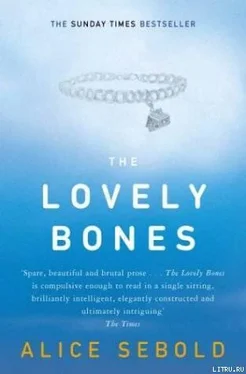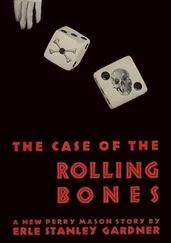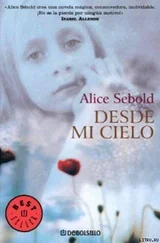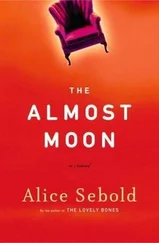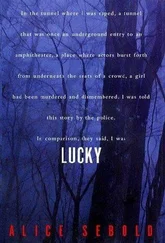“So, did it work out?” one of the two officers asked.
“I always did think I had something there.”
“Why didn’t you call us?”
“I wasn’t bringing back their daughter. When Detective Fenerman interviewed me I mentioned how I suspected the Ellis boy, and I turned out to be dead wrong. I didn’t want to meddle with any more of my amateur theories.”
The officers apologized for the fact that the following day Detective Fenerman would be calling again, most likely wanting to go over the same material. See the sketchbook, hear Mr. Harvey’s assertions about the cornfield. All of this Mr. Harvey took as part of being a dutiful civilian, even if it had been he who was victimized. The officers documented my sister’s path of break-in from the basement window and then out through the bedroom window. They discussed the damages, which Mr. Harvey said he would take care of out-of-pocket, stressing his awareness of the overwhelming grief the Salmon father had displayed several months ago, and how it now seemed to be infecting the poor girl’s sister.
I saw the chances of Mr. Harvey’s capture diminish as I watched the end of my family as I had known it ignite.
After picking up Buckley from Nate’s house, my mother stopped at a payphone outside the 7-Eleven on Route 30. She told Len to meet her at a loud and raucous store in the mall near the grocery store. He left immediately. As he pulled out of his driveway, the phone in his house was ringing but he didn’t hear it. He was inside the capsule of his car, thinking of my mother, of how wrong it all was and then of how he could not say no to her for reasons he couldn’t hold on to long enough to analyze or disclaim.
My mother drove the short distance from the grocery store to the mall and led Buckley by the hand through the glass doors to a sunken circle where parents could leave their children to play while they shopped.
Buckley was elated. “The circle! Can I?” he said, as he saw his peers jumping off the jungle gym and turning somersaults on the rubber-covered floor.
“Do you really want to, honey?” she asked him.
“Please,” he said.
She phrased it as a motherly concession. “All right,” she said. And he went off in the direction of a red metal slide. “Be good,” she called after him. She had never allowed him to play there without her.
She left his name with the monitor who watched over the play circle and said that she would be shopping on the lower level near Wanamaker’s.
While Mr. Harvey was explaining his theory of my murder, my mother felt a hand brush across the back of her shoulders inside a trashy store called Spencer’s. She turned with expectant relief, only to see Len Fenerman’s back as he made his way out of the store. Passing glow-in-the-dark masks, black plastic eight balls, fuzzy troll keychains, and a large laughing skull, my mother followed after him.
He did not turn around. She kept following him, at first excited and then annoyed. In between footfalls there was enough time to think, and she did not want to think.
Finally, she saw him unlock a white door that was set flush into the wall, which she had never noticed before.
She could tell by the noises up ahead in the dark corridor that Len had brought her into the inner workings of the mall – the air filtration system or the water pumping plant. She didn’t care. In the darkness she imagined herself to be within her own heart, and a vision of the enlarged drawing from her doctor’s office entered her head and simultaneously she saw my father, in his paper gown and black socks, perched on the edge of the examining table as the doctor had explained to them the dangers of congestive heart failure. Just as she was about to let go into grief, cry out, and stumble and fall into confusion, she came to the end of the corridor. It opened into a huge room three stories high that throbbed and buzzed and throughout which there were tiny lights mounted higgledy-piggledy on metal tanks and drums. She paused and listened for any sound other than the deafening thrumming of air being sucked out of the mall and reconditioned to be pushed back in. Nothing.
I saw Len before she did. Standing alone in the almost-darkness he watched her for a moment, locating the need in her eyes. He was sorry for my father, for my family, but he fell into those eyes. “I could drown in those eyes, Abigail,” he wanted to say to her, but he knew that this he would not be allowed.
My mother began to make out more and more shapes within the bright interconnected jumble of metal, and for a moment I could feel the room begin to be enough for her, the foreign territory enough to soothe her. It was the feeling of being unreachable.
If it had not been for Len’s hand stretching out and grazing her fingers with the tips of his own, I might have kept her to myself there. The room could have remained simply a brief vacation from her life as Mrs. Salmon.
But he did touch her, and she did turn. Still, she could not really look at him. He accepted this absence on her part.
I swirled as I watched it and held on to the bench in the gazebo, gulping air. She could never know, I thought, that while she was clutching Len’s hair and he was reaching his hand around to the small of her back, bringing her in closer, that the man who had murdered me was escorting two officers out his front door.
I felt the kisses as they came down my mother’s neck and onto her chest, like the small, light feet of mice, and like the flower petals falling that they were. Ruinous and marvelous all at once. They were whispers calling her away from me and from her family and from her grief. She followed with her body.
While Len took her hand and brought her away from the wall into the tangle of pipes where the noise overhead added its chorus, Mr. Harvey began to pack his belongings; my brother met a small girl playing Hula-Hoop in the circle; my sister and Samuel lay beside each other on her bed, fully dressed and nervous; my grandmother downed three shots in the empty dining room. My father watched the phone.
My mother grabbed at Len’s coat and shirt greedily, and he helped her. He watched as she tugged at her own clothes, pulling her sweater over her head, then her mother-jumper, and her turtleneck, until she was left in her underpants and camisole. He stared at her.
Samuel kissed the back of my sister’s neck. She smelled of soap and Bactine, and he wanted, even then, never to leave her.
Len was about to say something; I could see my mother notice his lips just as they parted. She shut her eyes and commanded the world to shut up – screaming the words inside her skull. She opened her eyes again and looked at him. He was silent, his mouth set. She took her cotton camisole over the top of her head and stepped out of her underwear. My mother had my body as it would never become. But she had her own moonlit skin, her ocean eyes. She was hollow and lost and abandoned up.
Mr. Harvey left his house for the final time while my mother was granted her most temporal wish. To find a doorway out of her ruined heart, in merciful adultery.
A year to the day after my death, Dr. Singh called to say he would not be home for dinner. But Ruana would do her exercises no matter what. If, as she stretched out on the rug in the one warm spot that the house seemed to hold in the winter, she could not help but turn over and over again her husband’s absences in her mind, she would let them consume her until her body pled for her to let him go and to focus – as she leaned forward, her arms outstretched toward her toes now – and move, to shut her brain off and forget everything but the slight and pleasant yearning of muscles stretching and her own body bending.
Reaching almost to the floor, the window in the dining room was interrupted only by the metal baseboard for the heat, which Ruana liked to keep turned off because the noises it made disturbed her. Outside, she could see the cherry tree, its leaves and flowers all gone. The empty bird feeder swung slightly on its branch.
Читать дальше
